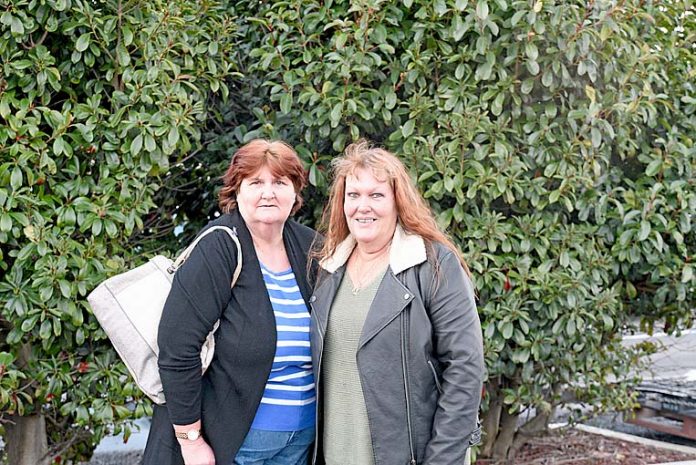
TWO South East mothers whose lives have been devastated by drug addiction have renewed their plea for more drug rehabilitation and detoxification services.
Tarpeena resident Karen Judd – whose son Jay tragically died from a drug overdose – is again appealing for governments to fund additional services.
This sentiment was echoed by Mount Gambier resident Evelyn Gordon, who has been a prominent campaigner after her daughter fell into the world of ice addiction.
The two drug campaigners spoke out this week ahead of next month’s premiere of In The Pines.
While there have been six rehabilitation beds rolled out in Mount Gambier, they say this falls well short of demand and detoxification beds are now a priority.
The women both claimed they were continuing to receive phone calls every week from desperate families battling drug addiction.
“How do addicts get to the point of rehab if there are not any services to help them?” Ms Judd questioned.
“An addict must go through a proper detox program before they can even think about going to rehab.
“They need to be detoxed and assessed for at least a week – even longer – before they are then released into a rehab facility, otherwise they will fall back into the trap.”
Both women believe a dedicated crisis centre will be “incredibly beneficial” to the families affected by the insidious drug.
The pair said the strain on police and health services was also too overwhelming with most of them ill equipped to understand the mind of an addict.
“If you take an addict to the hospital, the best they can do is knock them out for 24 hours before they are released,” Ms Gordon said.
“I am not blaming the health system at all as they are under-staffed with too much demand to bare.
“We need somewhere with staff specifically trained to deal with these people – it is not fair to expect the hospital or families to carry the burden.”
Believing there is not enough representation from those who have fought the epidemic face to face, they both agree government officials need to start collaborating with them.
“A degree does not give someone more insight into the world of drugs than someone who has actually lived through it,” Ms Gordon said.
“I do not understand why they have not spoken to families like ours that know exactly what is going on.”
The pair said they both receive more than a hundred calls a year for help from those living through the horror of drug addiction.
“You will never understand what it is like until you go through it yourself,” Ms Judd said.
“I was on edge every day for 12 years, the only time you can relax is when they are either passed out for days on end or are incarcerated.”
Ms Gordon also recalled her daily struggle due to her daughter’s ongoing ice battle.
“My daughter first became addicted at a very young age,” Ms Gordon said.
“Over the years she has got herself clean to turn around and relapse soon after.
“She has now been sober for 17 months, but it is still a process.”
Now aged in her thirties, Ms Gordon’s daughter is a mother of two children who have spent time in and out of child protection services due to their mother’s drug addiction.
“The effect it has had on her children is enormous,” Ms Gordon said.
“If we had the correct services here to help those struggling with addiction, maybe my grandchildren would not have been affected.”
Meanwhile, Ms Judd revealed her son battled drug addiction for more than 12 years before overdosing on a cocktail of different substances which subsequently caused his death.
Although Ms Judd’s son never physically assaulted her, she said you could never be sure of his next move.
“I would move my knives to a different spot in the house every day just in case,” she said.
“It is such a scary thing to see your child in a space like that – no parent in the world wants to be going through that.”
Throughout his drug journey, Ms Judd’s son would try and seek help, but struggled to find support avenues.
The result was a continuous cycle of drug abuse, which would see him in situations leading to incarceration.
“He did not fit any criteria for help,” Ms Judd said.
“The more we would try the more we would be turned away and he became more and more disinterested in overcoming the addiction.
“You only have a small timeframe when addicts are willing to receive help, if you wait too long they will be out scoring their next hit.”








